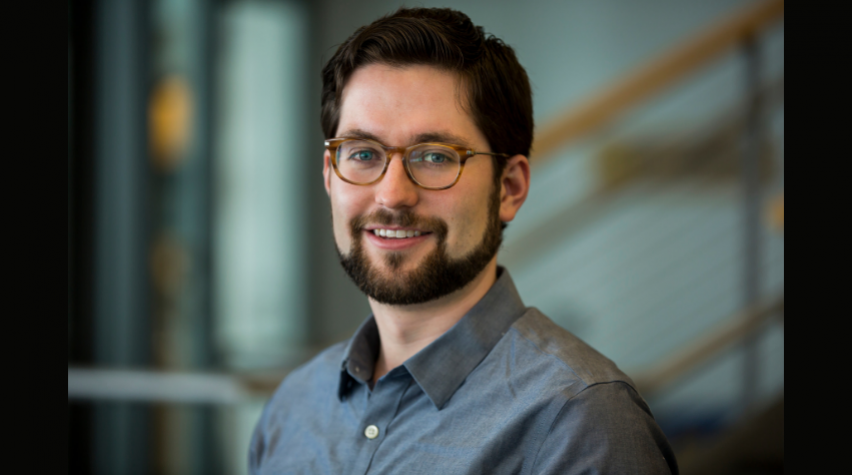
As part of AIChE's 110th Year Celebration, this series provides perspectives on the future of chemical engineering from dozens of leaders in industry, academia, and at national laboratories.
We continue with Andrew Karas. He recently completed his PhD at the University of Michigan, supervised by Prof. Sharon Glotzer.
During AIChE’s centennial year of 2008, AIChE interviewed chemical engineers to learn their perspectives on the profession's future. In today’s blog post, Dr. Karas presents his vision for chemical engineering post-2018.
Going forward, chemical engineers will need to continue collaborating with other fields of science and engineering to develop new innovations and put them to use in the marketplace.
Looking 25 years into the future, how do you expect your industry/research area to evolve?
The combination of advances in hardware (particularly GPUs), more powerful high performance computing systems, and clever improvements to simulation techniques will continue to push the scale of simulations. Bigger systems with more accurate force field representations to study longer timescales will be possible with future simulations.
I suspect that these changes may lead to radical improvements in simulations of proteins for both biomaterial applications and understanding the mechanisms of action for pharmaceuticals.
To fully take advantage of recent and forthcoming technical improvements in the field of computational materials, there should be a greater focus toward standardized, easily searchable databases. An effective database is vital for putting to use the recent developments in machine learning techniques as a first step in trying to determine the optimal material for a given application.
Core areas of ChE expertise are being augmented by new expertise in science and engineering at molecular and nanometer scales, in biosystems, in sustainability, and in cyber tools. Over the next 25 years, how will these changes affect your industry/research area?
These new, emerging areas represent a large portion of my graduate school experience outside of the core curriculum of coursework, so I already see these as vital to my research area.
Going forward, chemical engineers will need to continue collaborating with other fields of science and engineering to develop new innovations and put them to use in the marketplace.
In terms of technical skills, I expect chemical engineers will improve as programmers, and develop better skills in analytics as we strive to deliver increased efficiencies and make better use of finite resources.
What new industries/research areas do you foresee?
I expect that we might see increased adoption of lab-on-a-chip and, more broadly, MEMS devices. A key enabling factor for this area to take off will be the use of self-assembly processes for creating micro- and nano-scale features.
I think one important consideration for commercializing such technology for sensors and control devices is that one doesn’t necessarily need to create a device that has the best possible fidelity for single measurements.
If one creates devices capable of making and transmitting many measurements, it would instead be possible to rely on the law of large numbers and data processing for accuracy.
Taking into account the ongoing evolution of the professions — including the need for new modes of education; high standards of performance and conduct; effective technical, business, and public communication; and desires for a more sustainable future — what do you think the chemical engineering profession will look like 25 years from now?
I expect that the chemical engineering profession as we know it will be fairly recognizable 25 years from now. The ability to deliver large-scale commodities and conduct a broad range of research will still be the primary calling card of chemical engineers.
In terms of technical skills, I expect chemical engineers will improve as programmers, and develop better skills in analytics as we strive to deliver increased efficiencies and make better use of finite resources.
 AIChE's 110 Year Celebration
AIChE's 110 Year Celebration
Celebrate AIChE's 110-year anniversary. Attend this Annual Meeting session, focusing on the future of chemical engineering through the eyes of thought leaders from industry, academia, and national laboratories.


